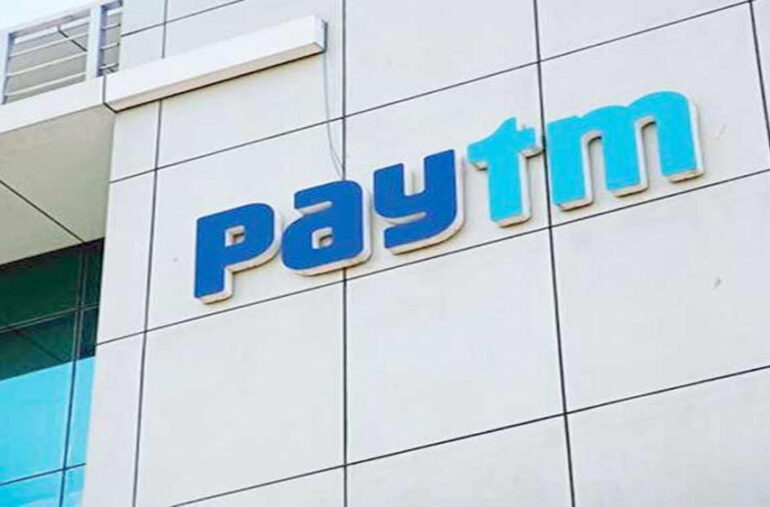Paytm market gains are awaited
(पेटीएम किया ‘तो’ प्रतीक्षा करो)
BY


Dr.V.V.L.N. Sastry
Jurist & Financial Economist
[Sassy_Social_Share]
The year 2021 has been a landmark year for India’s IPOs. Many unicorn companies have risen on the stock market wave – Nykaa, Lenskart, Zomato, Paytm, etc. Unlike Nykaa, which had a blockbuster debut and became a historic success story, others failed to live up to their potential. An example of this is Paytm’s failure on the stock market, the largest ever IPO in Indian history. In what was India’s largest-ever IPO, Paytm raised $2.46 billion (Rs. 18, 300 crores). The shares were priced at Rs. 2,150, and everything appeared to be going smoothly until the day of trading, but the share price crashed dramatically on opening day. Investors of Paytm ended the trading session with a 27.24% decline in share price. The dramatic decline continued for a second day, inflicting almost $900 million in investor losses within two days.
Paytm was questioned by investors about its lack of profits and its lofty enterprise value of 27 times gross profit. Its price fall shocked many and reduced its IPO valuation by $5 billion. Paytm’s successful IPO and subsequent failure on the listing have made headlines in India. Introspection has commenced on what exactly caused such a massive failure in such chaos and confusion.
Paytm’s massive IPO failure can be traced to five factors: overpriced listing, low profit prospects, future uncertainty, UPI competition, and cultural differences between investors.
Since the IPO was offered at a much higher valuation than the actual company valuation, the company suffered market losses as a result. Paytm’s parent company, One97 Communication, traded at 49.7 times its FY21 revenue. During this time, Paytm had not yet recorded any profits, which brings us to our second reason for the company’s IPO failure. Paytm stands in a tangle of financial troubles. Since Paytm’s inception, it has raised approximately Rs. 190 billion in equity capital. There is grave concern that 70 percent of those 132 billion rupees have been used to recover the company’s losses. Over the years, the company has continuously expanded into different business lines, including payment wallets, commerce, investments, insurance, etc. Unfortunately, none of the business divisions have shown positive financial results. As a result, there is uncertainty about the company’s profitability. In the past, institutional investors have expressed concern about the future of Paytm. And now, there is an even greater frenzy. The lack of a license to operate in the lending business is one of the significant factors contributing to distrust. All fintech companies make the most money from their lending divisions. Therefore, a financial services company must have a lending component to be in good books with investors. Paytm, however, does not have a license to enter this fintech market segment.
As one of the biggest success stories of the last decade, Paytm has now been outperformed by its competitors. Paytm is facing intense competition from big sharks, which have a better track record of success. Consumers are increasingly switching to UPI payments for easy direct bank transfers. PhonePe, which represents 42% of all UPI transactions in the country, is the biggest threat to the company. BHIM and Google Pay are other big names in the industry. Paytm’s future in this segment is directly impacted by PhonePe and Google Pay, which together account for more than 82% of the UPI market in India.
Paytm listing is also affected by cultural differences in investors. In comparison with Indian investors, foreign investors have a higher appetite for stock market risks. India’s market is driven by profitability and earnings – segments where Paytm has no chance.
All things considered, the golden phase of IPOs in India appears to be over for the moment, as Paytm’s shares fell on debut on November 18. In the wake of this unexpected turn of events, there has been debate over whether it will impact upcoming IPOs, including Life Insurance Corporation of India, MobiKwik, and OYO. One school of investors believes that capital markets are driven by sentiments, which will adversely affect upcoming IPOs, while the liberal school believes it will have little effect.
In the short run, IPO valuations will cause investors to be cautious, negatively affecting the market. However, this will not affect the entire market. Those companies that will not be adversely affected are those with solid growth rates, reasonable valuations compared to global players, and already profitable or looking to be profitable soon.
Eventually, this may not matter since the market and investors will still favour new economy companies. Investing in new-age companies will require investors to re-examine their expectations and expect no instant earnings. The companies with high cash burns who intend to go public will look to give realistic valuations in light of the Paytm debacle as well as the cash burn-out companies may define a clear path to profitability.
Since start-ups have been raising large amounts of equity from private equity and venture capitalists at exorbitant valuations for the past few years, aiming to capture market share at the expense of revenue and profit, Paytm’s failure at IPO should serve as a reminder that the business model should be sound and defendable. In addition, the IPO should be priced reasonably and should leave money on the table for incoming investors. Investors too must educate themselves on valuations before investing in any IPO than crying foul subsequently after investing.
(The author is a Post-doctorate in Economics and Ph. D in law and public policy. A passionate Financial Economist and Law Expert)


